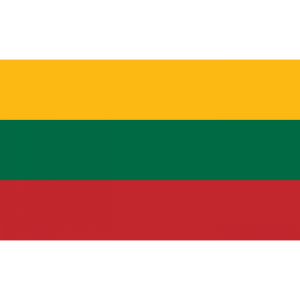Language/Lithuanian/Culture/Greetings-and-Customs-in-Formal-Situations
Greetings and Customs in Formal Situations
Labas! (Hello!) Are you ready to learn about Lithuanian social customs in formal situations? Whether you're traveling to Lithuania for business or pleasure, it's important to be familiar with the cultural norms associated with greetings and social interactions in order to make a good impression and avoid misunderstandings. In this lesson, we'll explore some of the customs associated with formal greetings, gift-giving, and business etiquette in Lithuania.
Greetings in Lithuanian
Before we get started with the specifics of Lithuanian social customs, let's review some basic Lithuanian greetings:
- Sveikas! (Informal hello - used with friends, family, and peers.)
- Sveiki! (Formal hello - used with strangers, elders, and in business interactions.)
- Iki! (Goodbye - used with friends and family.)
- Viso gero! (Goodbye - used in formal or professional situations.)
When greeting unfamiliar people, it's traditional to shake hands. However, it's important to note that Lithuania is a relatively reserved culture, so it's not uncommon for people to be more reserved than you're used to.
Another interesting custom in Lithuania is the use of diminutives. Lithuanians often use shortened versions of names and words to show familiarity and affection. For example, the name Andrius might be shortened to Andriukas or Andriukė, while the word maža (small) might be shortened to mažyčia or mažyli.
Gift-Giving in Lithuania
Gift-giving is an important part of Lithuanian culture, particularly during the holiday season or on special occasions such as birthdays, weddings, and anniversaries. Here are a few things to keep in mind when giving gifts in Lithuania:
- It's customary to bring a small gift when invited to someone's home, such as flowers or chocolate.
- If you're hosting a formal event, such as a dinner party or business meeting, it's appropriate to provide small gifts or favors to your guests as a gesture of goodwill.
- If you're giving a gift to a business associate or colleague, it's a good idea to stick to small, simple gifts such as pens or desk accessories.
Overall, it's important to keep in mind that Lithuanians are generally modest and reserved, so flashy or expensive gifts may be seen as inappropriate or even ostentatious.
Business Etiquette in Lithuania
If you're visiting Lithuania for business, it's important to be familiar with Lithuanian business customs and etiquette. Here are a few things to keep in mind:
- Lithuanians value punctuality and expect their business partners to arrive on time for meetings.
- It's customary to address business associates by their last name with the honorific panas or ponia (equivalent to "Mr." or "Ms.") unless invited to use their first name.
- Business attire in Lithuania is generally conservative, with dark suits and ties for men and modest dresses or suits for women.
- When presenting business cards, it's customary to do so with both hands.
Overall, it's important to approach business interactions with a respectful and professional demeanor, while also taking care to build personal relationships and rapport with your Lithuanian counterparts.
Conclusion
That's it for our lesson on Lithuanian social customs in formal situations. Whether you're planning a trip to Lithuania for business or pleasure, taking the time to learn about the culture and customs can help you make lasting connections and build positive relationships. Don't be afraid to ask questions or seek guidance from locals if you're unsure about specific customs or traditions.
Related Lessons
- Celebrations and Holidays
- Lithuania Timeline
- Lithuanian Sports
- Festivals and Celebrations
- Geographic Features and Landmarks
- Lithuanian Literature
- Music and Dance
- Outdoor Activities
- Cuisine

